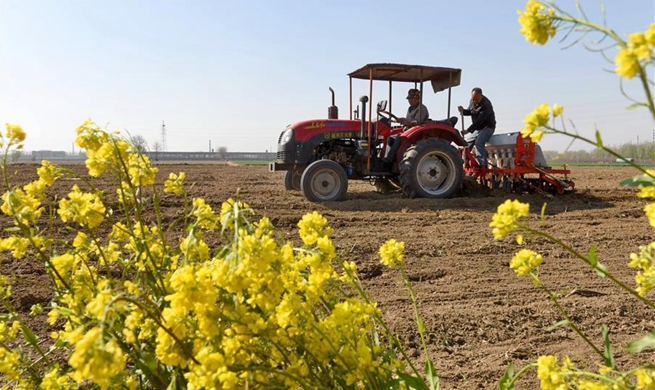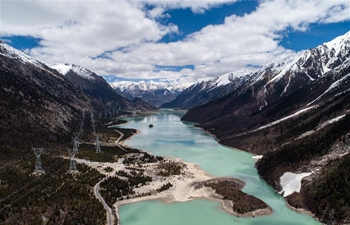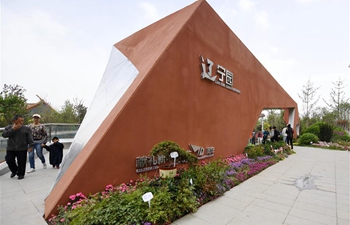BERLIN, May 20 (Xinhua) -- More than 3,000 km of disused railway lines in Germany could be reactivated without too much effort, the Association of German Transport Companies (VDV) and the Pro-Rail Alliance announced at a joint press conference on Monday.
The two associations identified 186 sections of tracks across Germany, each between 1 and 60 km long, that had been closed down in the past decades.
The VDV and Pro-Rail Alliance have identified the stretches of deactivated German rail lines, which they considered worthwhile to be put back into operation.
"The railway is coming back to regions", where it has long been abandoned, said Dirk Flege, executive director of the German Pro-Rail Alliance.
The two German transport associations believe that reactivating rail lines would improve passenger transport in the country and would make it possible to close numerous gaps in the German rail network.
Several previously closed railway connections are already being reactivated because Germans want "rail transport for their journeys and companies for their freight transports," stressed Flege.
According to a map published by the Pro-Rail Alliance, a total of 827 km of passenger rail connections and 359 km of freight rail connections have been put back into service since 1994.
However, during this period, over 3,600 km of passenger routes had been cancelled. The German rail network had shrunk to around 38,500 km today, compared with 44,600 km in 1994.
"This shrinking must finally be stopped," said Flege.
Reactivating German railroads would also help the government achieve its goal of doubling the number of passengers using the rail network.
"If we want to achieve this, we have to stop the long-standing withdrawal of the railways from the land and reverse this trend where it's appropriate," said VDV President Ingo Wortmann.
A recent study commissioned by the German government showed that the reactivation of rail lines would make sense for environmental reasons.
"The already successful reactivations are encouraging, but the need for action remains enormous. The good news is that there is great potential for further reactivations," said Wortmann.
Both the Pro-Rail Alliance and VDV stressed that the German rail network needed to be permanently secured and expanded in view of rising passenger numbers and freight transport.
"Germany urgently needs significantly higher investments in its railway infrastructure in order to bring more traffic onto the railways," concluded Flege and Wortmann.
Last week, the German coalition government agreed to make around 52 billion euros (58 billion U.S. dollars) available to Deutsche Bahn, which is responsible for most of the German railway network, by 2029.
Deutsche Bahn itself would add another 31 billion euros from its own resources.
"Only with an efficient rail network will we put the German timetable on track. Strengthening the rail infrastructure is another concrete contribution to effective climate protection," said Ulrich Lange, deputy leader of the CDU/CSU parliamentary group responsible for transport.













